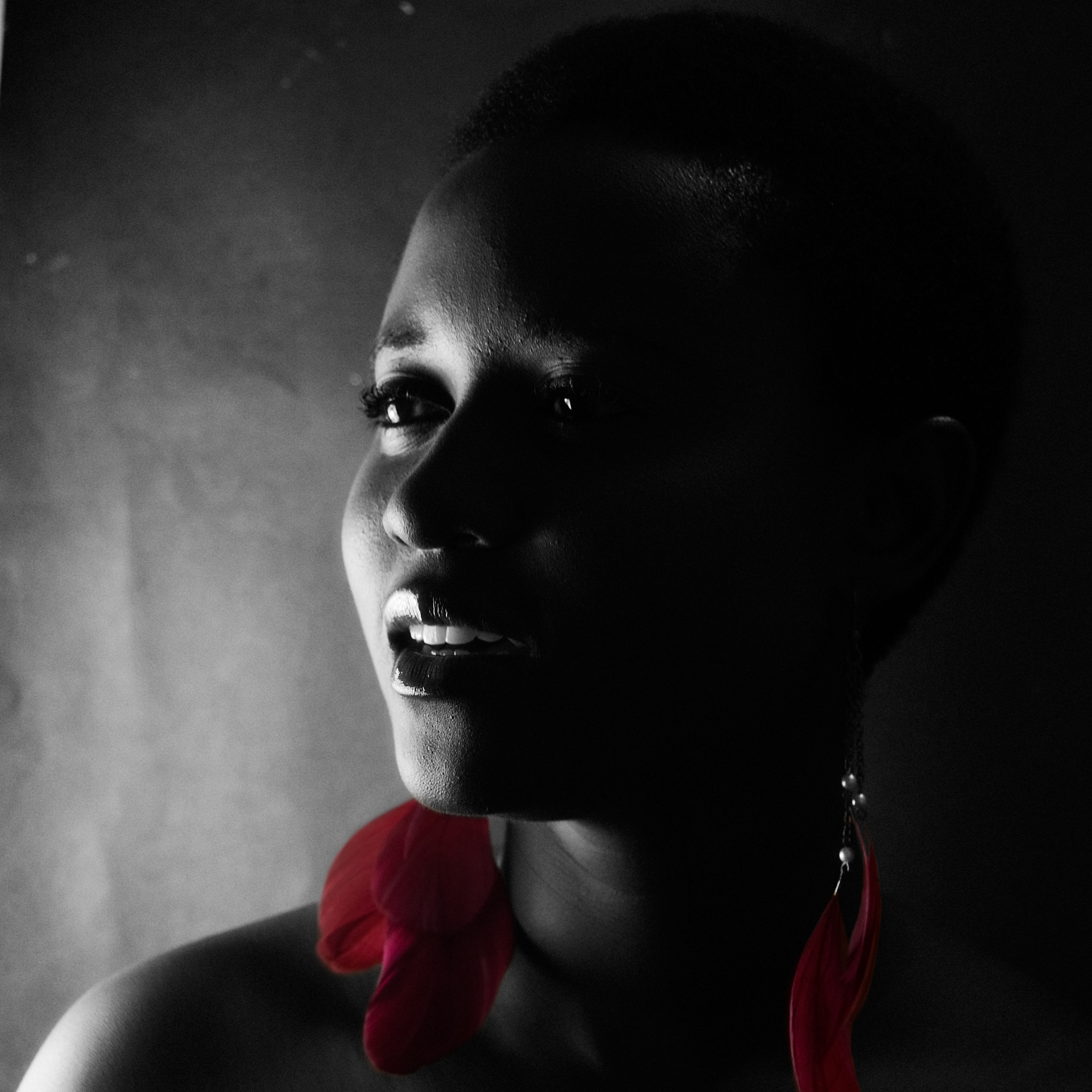
Konya Shamsrumi: What is the process of writing a poem like for you? Is it a lot of hard work or easy?
Tjawangwa Dema: I’m not one of those people to whom poems come fully fledged but even I can admit that some ideas arrive with a clarity of feeling or imagery, if not language. But mostly and almost always I’m digging away at language, cajoling and grappling with clarity. I suppose writing is revising and editing and hoping you know just when to stop. It’s always serious work for me, it just happens to be work whose reward is worth staying with the trouble for.
Konya Shamsrumi: Please describe your sense of identity in this or any possible world in imagery or metaphor?
Tjawangwa Dema: I’m a communal creature but some of that community has to do with being silent and observing. Language and imagination suit me because I like people but like my space too. I imagine that instinct to share and to (yet) remain attentive to the world as well as to other writers and thinkers shapes the way I think. I can only hope it is reflected in my work as well as in my relationships off the page.
Konya Shamsrumi: If any of your poems could literarily save a person’s life, which poem would it be and can you describe the person whose life you think it would have saved?
Tjawangwa Dema: I definitely believe in poetry’s capacity to intervene in how we think and what we are able to think about; its ability to make information available to us in ways that invite us to be less defensive or more receptive to what is being said. We might learn that we are not alone in feeling or being a particular way or perhaps we might realise the consequences of an action we are only just contemplating, etc. And, in turn, timely or evocative words could shift us politically or aesthetically. But the poem is not, I think, a manifesto or instruction whose end ‘function’ we can predict.
Having said that, people turn to poetry and attend readings in their numbers or we are told sales increase in times of uncertainty or increasing divides so there is something powerfully productive at work there. The poem requires us to become emotionally-intellectually entangled, to think-feel alongside it. What comes of that thinking I leave to the poem and you, that is the burden of being human. That kind of learning is likely collective and cumulative too so I would hate to be the poem solely burdened with saving or not.
Of course, others may feel differently. That is
their story. I can only say that certainly there are individuals, movements and
geographies that have a closely linked history between poetry and the struggle for
freedom. Don’t hold me to this (I’ve run out of rooibos tea as I respond to
this) but as an example I’m thinking here primarily of the global south, of South
Africa and what I imagine to be a Latin American poetic ethos. I’m generalizing,
as one does with these things, but I’m afraid I could not conjure the necessary
conviction to offer up a specific poem or person in response to your question.

Konya Shamsrumi: What does Africa mean to you, as potential or reality?
Tjawangwa Dema: It is, broadly speaking, home. Whether I live there or not is immaterial. I carry it in my languages and accent, my idea of how Englishes and narrative can function, my skin, and I work to summon ‘it’ when I think of a reader.
Konya Shamsrumi: Could you share with us one poem you’ve been most impressed or fascinated by? Tell us why and share favorite lines from it.
Tjawangwa Dema: To be honest, the answer to this question would likely change each time I was asked this question. If I were thinking about trees, I’d pick a poem by Kwame Dawes, mythology and I’d turn to Kathy Jetnil-Kijiner, migration? then Zena Edwards, telling your story would lead me to Lebo Mashile, but I will play along. Today, that poem is So Much Happiness by Naomi Shihab Nye. I am suspicious of willful obscurity but I love complexity because it’s something inalienable from sentience. I’ve always been drawn to this idea of what Gabeba Baderoon might call ‘the mystery of sameness’ (From the poem ‘I Forget to Look’).
A lens that acknowledges difficulty and can hold that thought alongside the attraction of simplicity has much to offer the reader. This can happen within a poem or overtly. Let us return to Shihab Nye’s poem
It is difficult to know what to do with so much happiness.
With sadness there is something to rub against,
[…]
And later
Happiness lands on the roof of the next house, singing,
[…]
When I was much younger, I used to do sums in my head (it seemed efficient) and there was a math teacher always saying ‘show your work’. I’ve carried some of that practice over to poetry and almost always begin with overwritten first drafts from which I have to carefully cull without taking out what needs keeping.
The poem as a form is a construct, its architecture is intentional and therefore its language is unnatural or not naturally occurring. It can take a whole poem to convey what could otherwise be a look between two people or the poem might successfully convey in a line what could never be spoken outloud over a lifetime. It is a difficult thing to appear to uncomplicate what is a complex (not in any kind of grand manner) enterprise.
Where the poet choses to exert their labour – line, diction, recursiveness, strangeness, form, etc. – is their business but it is work that demands doing. And it has been done here. Shihab Nye’s So Much Happiness is not a poem that is trying too hard, it simply has its own truth to tell and a voice in which to tell it. That is more than enough, it is infectious.
Tjawangwa Dema is a poet, educator and arts administrator. Her collection The Careless Seamstress (University of Nebraska Press, 2019) won the Sillerman First Book Prize for African Poetry. Her chapbook Mandible (Slapering Hol Press, 2014) was selected for the African Poetry Book Fund’s New-Generation African Poets series. She has an MA in Creative Writing from Lancaster University and has given readings and taught workshops over twenty countries. Her poems have been translated into languages including Spanish, Chinese, German and Swedish. She lives in the UK where she co-produces Africa Writes- Bristol festival and is Senior Research Associate at the University of Bristol.
- Poets Talk: 5 Questions with Kayeon Onyeka - February 25, 2025
- Poets Talk: 5 Questions with Jakky Bankong-Obi - December 3, 2024
- Poets Talk: 5 Questions with Odu Ode - November 26, 2024












thanks this article is really motivate me